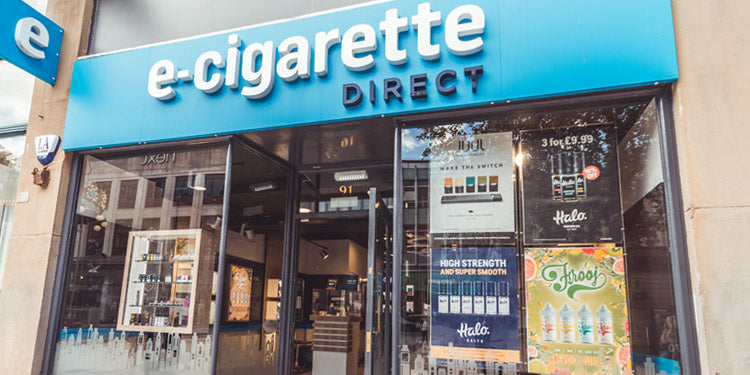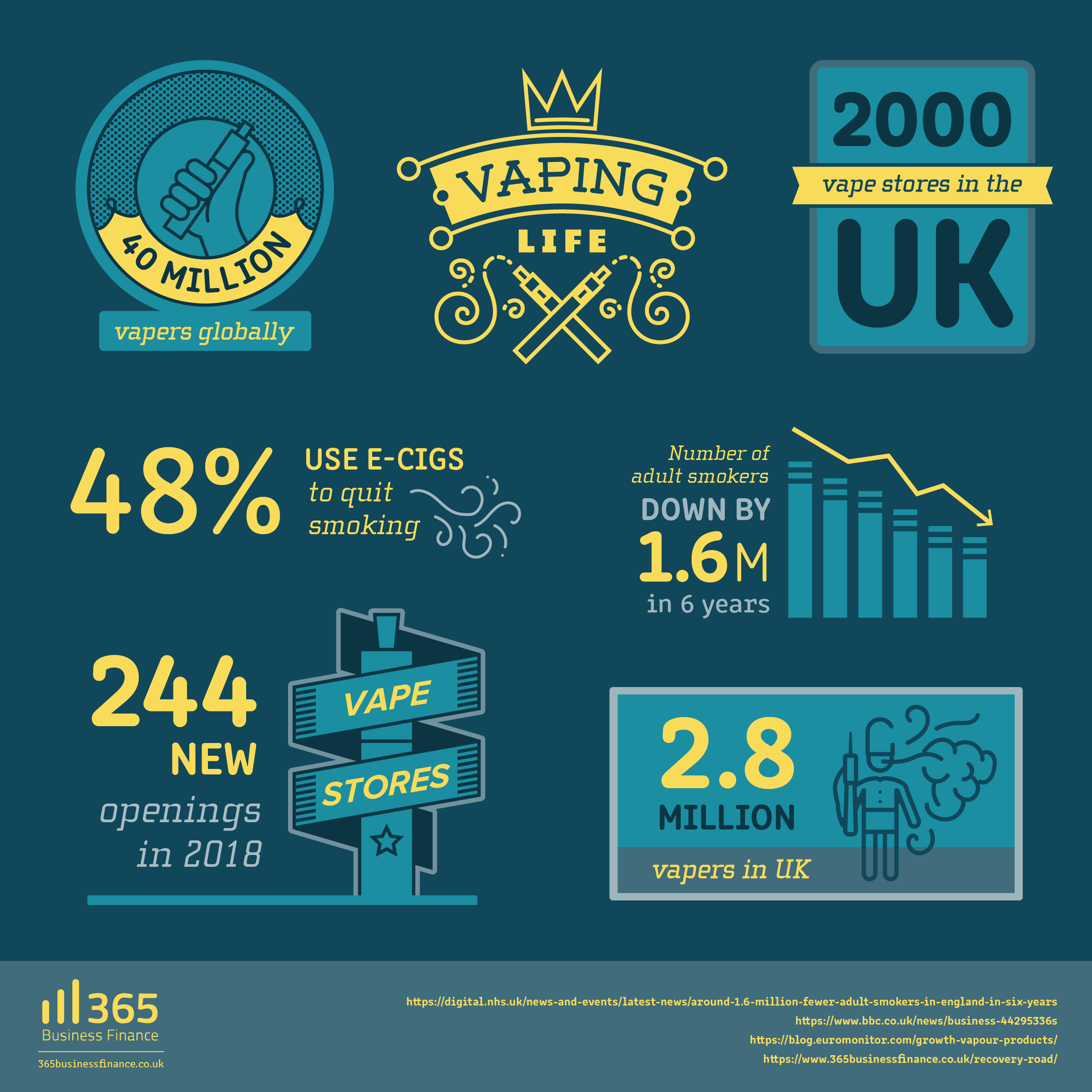
Accidental Entrepreneurs: The Story of the UK Vape Industry
I was recently very kindly invited to speak on behalf of the UK Vape Industry Association at SME for Labour at the Labour conference in Brighton. The brief was to talk both about how our own business got started and the benefits of the vape industry for the UK economy, although I couldn’t resist getting some points in about how vaping has changed people’s lives.
After the speech, Rachel from the New Nicotine Alliance suggested I turn the speech into a blog post. So here it is...
My involvement with vaping started in August 2008. I was working abroad at the time and, during a trip back home, my mother happened to show me what looked like an oversized model cigarette. To my amazement when she puffed on it the end lit up and she exhaled a white cloud that looked very much like smoke.
Now, my mother had smoked for decades. To try and get off smoking, she had tried everything from patches to acupuncture. Some things had worked for a while, but nothing on a permanent basis. But when she tried that early e-cigarette, something clicked. It’s now eleven years later, and while she still loves vaping she hasn’t had a single cigarette since.
Sensing it’s potential, my mother asked me if I could build a website to sell the device. Sat at my mother’s kitchen table, I opened my laptop and got to work. After about two weeks, we had a basic but functioning e-commerce website. We scraped together some funds from our savings (£1500 to be precise) bought some stock and started selling.
Things started slowly in those early days - in fact, I didn’t take a salary for two years. We certainly didn’t have the resources for serious marketing, and things got tricky after Google decided to ban advertising for vape products. We found many of our early customers by going round country fairs and shows, often staying in a small caravan we towed behind the car. As people walked past us, we’d ask them if they were a smoker - if they said yes, we’d hand them an e-cig and get them to try it.
Those early shows lead to two things. First, many of the customers we found started buying regularly from our website. Each show lead to a boost in web sales. But what’s more, the customers who loved vaping and found it helped them get off cigarettes didn’t stay silent. They told their friends about vaping, and their friends told their friends.
Vaping was becoming a movement. But what we didn’t know then was the wave of opposition we would soon face.
From that first £1500 of investment we now have 20 shops across the UK. We employ over 90 people, and these include both highly trained retail staff and skilled jobs such as data analysts and web developers.
What’s more, and without a single penny of the government’s money, over the last eleven years we have helped hundreds of thousands of smokers to take their last puff from a cigarette.
We’re close to many of our customers, and we’ve seen the real changes in lives vaping can make. One of many, many examples was when a customer with COPD emailed us to tell us he had taken his dog for a walk - for the first time in five years.
Vaping doesn’t just lead to health benefits. Smoking is incredibly expensive and costs a 20 a day smoker over £3000 a year. Unfortunately, this hits the poorest hardest. I’ve known smokers get into debt and even go without food in order to afford their daily ten pounds on cigarettes.
But I’ve also seen people who were struggling to make ends meet get money back in their pocket after quitting smoking. One of the most striking examples was Julie Parnell, a customer of ours who had the money saved for a deposit on a small house but couldn’t afford a mortgage because of smoking. After switching to vaping, she was finally able to buy a small house of her own. (You can read Julie's full story on This Is Money.)
Our own story is typical of many in the sector. The vape industry is frequently represented as “Big Tobacco” in different clothing. But in fact, many of us are accidental entrepreneurs, who had no idea that a passion would become a business larger than one or two people. We found something we loved, something that helped us to improve the quality of our lives, and that passion lead us to build a business around it.
We’re now reversing the trend of moving from high street to online, with many of us starting businesses online and using the revenue from that those web businesses to start opening stores. Now, and at a time when the retail sector is in free fall, our industry is opening hundreds of shops across the country, and is playing a key role in the high street’s fight for survival.
[caption id="attachment_25048" align="alignnone" width="2400"] Vaping data valid to 2018 provided by Recovery Road.[/caption]
Vaping data valid to 2018 provided by Recovery Road.[/caption]
There’s a reason for that. Our shops are service focused, providing the support and expertise needed to help people get off smoking. Sometimes our teams will spend an hour or more with a customer, finding them the devices, flavours and nicotine strength that will work for them. A perfect example of this was one of our team members who spent over an hour with a customer who didn’t speak English, translating every word using Google Translate, until he could find the right vape for that smoker.
But our work doesn’t stop there. After-service is often essential to teach people how to get the most out of their device, help them stick with vaping and stay off smoking. It’s a service that is impossible to replace fully online, and a far cry from the automated checkout service you’ll increasingly find in supermarkets, replacing people’s jobs with machines.
The vape industry is employing thousands of people who, at the end of the day, have one job - to help other people get off smoking with the help of vaping. To do this via stop smoking services would cost tens of millions, but at the same our industry is also supporting the UK economy, and paying many millions in VAT, national insurance, property rates and taxes.
The product we sell most of is e-liquid. This e-liquid is manufactured in factories right here in the UK. This new UK industry is leading the world in terms of standards, quality and safety, exporting across Europe and much of the globe, while providing new manufacturing jobs for British people and new research jobs for British scientists and toxicologists.
Vaping has real benefits for the economy, for jobs and for the people of the UK. Yet despite the real benefits to customers and the economy, small and medium companies like us have had to build our businesses in the midst of a deliberate and well-funded campaign of misinformation from powerful interests threatened by the elimination of smoking. Scientists and PHE see vaping as orders of magnitude safer than smoking, but people are listening to media horror stories, not scientists.
This was superbly illustrated for me at the end of the event at the recent Labour Conference at which I spoke. As people emptied, two security guards popped their heads round and asked what the event had been about. When we explained it was about vaping, one of them asked:
“Isn’t that the thing which causes popcorn lung and pneumonia?”
It turned out both were smokers, and neither had tried vaping because they were scared about the health effects. While it took just a few minutes to burst their misconceptions, there are millions of people around the country who are in exactly the same position - facing an early death because of misinformation and, sometimes, bare faced lies. That’s a large part of why I and others speak at events, do media interviews and write blog posts - but it’s a David v. Goliath battle, and it’s hard to reach enough people to make a difference.
Yet despite these difficulties, we’ve been incredibly fortunate in this country that Public Health England, MPs like Sir Kevin Barron and pretty much every major anti-smoking body in the UK have chosen to look at research rather than media hysteria, and as a result have chosen to support rather than hinder vaping. They understand that while smokers smoke for the nicotine, they die from the tar. As many vapers and people in the industry know, that support has been vital to the survival of the vaping.
I feel proud that, unlike other many countries, the UK has chosen to ignore the tax implications of a reduced smoking rate and focus on the research. And I’m angry that Public Health England and UK scientists attract harsh criticism for adopting an ethical, evidence based approach to vaping rather than, like most other countries, take the easy way out and bow to media pressure.
The vape industry can continue to support the high street and create new jobs - and at the same time help the UK meet its target of being Smoke Free by 2030. But in order to do so, both the industry and Public Health England are going to have to work very hard to overcome the many lies told about vaping by those who really should know better.